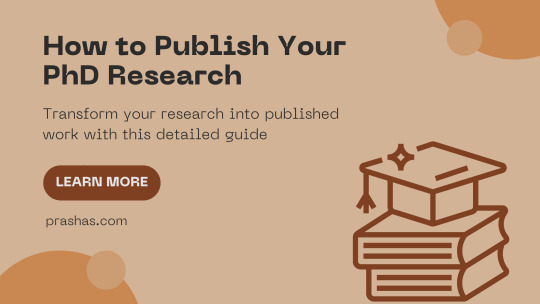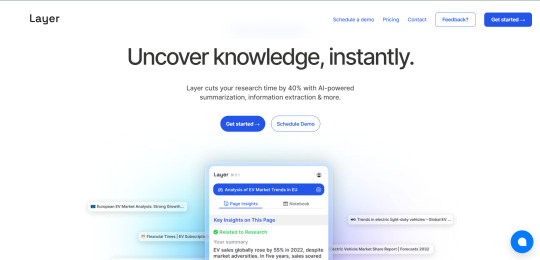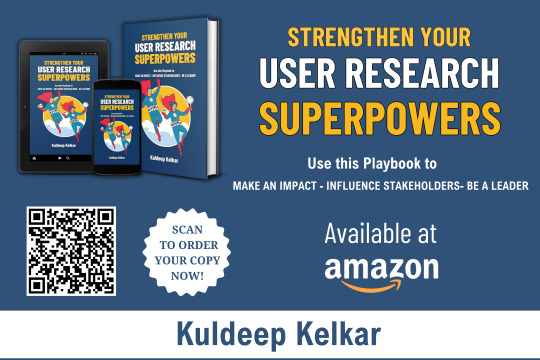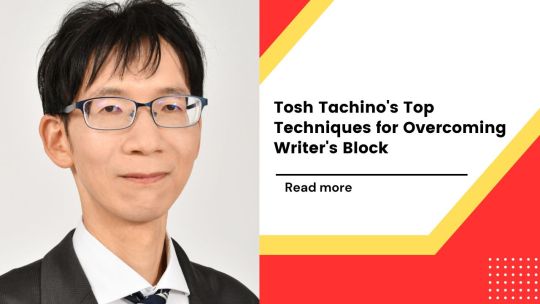#ResearchTips
Explore tagged Tumblr posts
Text
The Ultimate Guide to Successfully Publishing Your PhD Research
Publishing your PhD research is a key milestone in your academic career. It turns years of hard work into key contributions to your field. This, in turn, increases the importance of your scholarly contributions. Yet, it can be overwhelming. The process has many phases, from paper prep to negotiating peer review. This tutorial simplifies the process. It gives techniques for successfully publishing your study.

Why Publish Your PhD Research?
Publishing isn't about adding lines to your CV. it has broader implications.
The Advancing Knowledge: Your research enhances the academic discourse in your field.
The Establishing Credibility: Published work establishes you as a credible and recognized researcher.
Career Growth: Publications are often prerequisites for academic and research positions.
Networking: It opens doors for collaboration and discussions within your field.
Step-by-Step Guide to Publishing Your PhD Research
1. Understand the publication process
Before diving in, familiarize yourself with how academic publishing works. This includes:
Types of Publications: Full research articles, review papers, and short communications.
Timeline: The process, from submission to publication, can take months to years.
Key Players: Editors, reviewers, and journal staff guide the process.
2. Choose the Right Journal
Your choice of journal impacts the visibility and reach of your research. Consider:
The audience and scope: Ensure the journal aligns with your research areas.
The Impact Factor: While not the sole indicator, it reflects the journal's influence.
Open Access vs. Subscription: Open-access journals reach more people. But, they may charge fees to process articles.
Pro Tip: Use tools like Journal Finder or Think. Check. Submit. to identify suitable journals.
3. Be Prepare Your Manuscript
Follow the guidelines: Adhere strictly to the journal's submission guidelines.
Clear Writing: Make your research accessible without losing technical depth.
Effectively structure: Typically, employ IMRaD (Introduction, Methods, Results, and Discussion).
"Cite Responsibly: Use proper referencing styles and avoid self-plagiarism."
4. Seek feedback before submission.
Share your draft with peers or mentors for constructive feedback.
Utilize editing services or writing workshops to refine your manuscript.

5. Submit Your Research Manuscript
Include a powerful cover letter that emphasizes the importance of your job.
Upload your manuscript and supplemental files through the journal's online submission system.
6. Reaction to Peer Reviews
Be patient: Peer review can be lengthy, but it is essential for quality assurance.
Address Reviewer Comments: Be thorough and polite in your responses, providing detailed revisions.
Prepare for Rejections: If reviewers reject your paper, improve it using their feedback. Then, consider resubmitting it elsewhere.
7. Post-Publication Steps
Promote Your Research: Share your work on networks like ResearchGate and LinkedIn.
The Track Metrics: Track citations and downloads to understand your paper’s impact.
Engage with the community: Present your findings at conferences and workshops.

Overcoming Common Challenges
1. Time Constraints
Balancing publication with other responsibilities is tough. Create a timeline and dedicate specific hours each week to writing and revisions.
2. Fear of Rejection
Rejections are part of the process. Treat them as learning opportunities to strengthen your research.
3. Navigating Ethical Concerns
"Follow ethical guidelines. Avoid plagiarism and secure informed consent for studies involving human participants."
FAQs
1. How long will it take for the publication process?
It varies by journal and its peer-review process. Generally, it takes 3–12 months from submission to publication.
2. Can I publish negative results?
Yes! Negative results aid science. They can help others avoid the same mistakes.
3. How many papers should i need to publish during my PhD?
This depends on your discipline and program requirements. On average, 2–5 papers are a reasonable goal.
4. Do I need to pay the amount to publish my research?
Some journals charge fees for open access, while others do not. Always verify fee structures before submission.
5. What if my research is rejected?
Revise based on feedback and submit to another journal. Rejection is not the end of the research!
Conclusion
Publishing your PhD research is rewarding but tough. Know the publication process, choose the right journal, and persevere. Then, you can share your work with the world. Remember, every published paper is a step forward for your career and your field. Keep learning, improving, and contributing!
#PhD#ResearchPublishing#AcademicSuccess#PhDResearch#PublishYourResearch#DoctoralStudies#PhDLife#GradSchool#AcademicWriting#ThesisWriting#PhDStudents#ResearchJourney#PublicationTips#Doctorate#GradStudentLife#ResearchTips#PublishingJourney#HigherEducation#PhDCommunity#AcademicExcellence#ResearchScholar#ResearchGoals#ScientificPublishing#DoctoralResearch#PhDAdvisor#PhDGuide
2 notes
·
View notes
Text
Plagiarism isn't just an academic offense - it's a threat to your credibility as a researcher. In this eye-opening video, we break down why every researcher, scholar, and academic writer must use a plagiarism checker before submitting their work.
Learn how plagiarism (intentional or accidental) can derail your publication, damage your reputation, and delay your academic progress. We’ll show you:
What plagiarism checkers actually do
How they protect your originality
Real examples of overlooked duplications
The best practices for ensuring authentic, ethical research writing
Whether you're writing a thesis, dissertation, journal article, or grant proposal, this video is your essential guide to maintaining academic integrity.
Don’t submit your work without watching this first! Like, Share, and Subscribe for more research tips and tools.
0 notes
Text
💥 Your HPLC Columns Might Be the Real Drama Queens in the Lab
You’ve optimized your gradient. Your mobile phase is on point. Your sample is filtered to perfection. But your peaks still look like they’re having a meltdown?
👉 It’s probably your HPLC column acting up. And no one talks about it enough.
🧪 What Are HPLC Columns Actually Doing?
Behind that shiny steel exterior, HPLC columns are where the magic (or the chaos) happens. They’re packed with tiny particles that separate your sample based on interactions with the mobile phase — and every compound takes a different path out.
Basically, your HPLC column is running a tiny molecular obstacle course. And how well it works depends on the chemistry happening inside.
📊 Quick Guide to HPLC Columns (aka Choose Your Fighter)
Column TypeBest ForWhy You’ll Love ItC18 ColumnNon-polar compoundsThe classic reversed-phase beastC8 ColumnQuicker separationsLess retention, faster run timesPhenyl ColumnAromatic compoundsπ-π interactions for better selectivityAmino ColumnSugars & polar analytesWorks in both normal & reversed-phasePFP ColumnHalogenated & polar compoundsUnique selectivity, method-saver
💡 Pro tip: Choosing the right HPLC column can fix peak shape, improve resolution, and save you HOURS of troubleshooting.
🧼 How to Keep Your HPLC Columns Happy
HPLC columns aren’t indestructible. They’re sensitive, high-performance tools — and they demand respect.
✅ Always filter your samples & solvents ✅ Use a guard column (seriously, just do it) ✅ Avoid wild pH and pressure swings ✅ Don’t store them dry – use the right solvent ✅ Follow manufacturer guidelines like gospel
🚨 If Your HPLC Method Is Struggling…
Before you rewrite your whole method or blame the mobile phase, consider this: the issue might be with your HPLC column. A worn-out or poorly chosen column can wreck even the best method.
💬 Let’s Chat: HPLC Column Edition
💬 What’s your go-to HPLC column and why? 😅 Ever had a column completely save (or ruin) your separation? 🧪 Got tips for niche analytes? I want to hear ‘em!
Drop your comments below — let’s build the ultimate HPLC column thread.
📥 Bonus: I made a 1-page HPLC Column Selection Guide (great for students, new analysts, or anyone who’s tired of bad peaks). Reblog or DM me and I’ll send it your way, free.
#HPLCColumns#HPLCColumn#Chromatography#Chemblr#LabLife#AnalyticalChemistry#C18Column#C8Column#PFPColumn#PhenylColumn#AminoColumn#ScienceNerds#HPLCSeparation#ScienceTumblr#ResearchTips
0 notes
Text
Academic Writing: Building Strong Thesis Statements From Vague Ideas to Arguable Claims in 2025

Thesis statements are the backbone of academic writing — a single sentence that can make or break your essay, research paper, or dissertation. Yet, studies show that 65% of students struggle to craft clear, arguable claims, often settling for vague assertions that lack focus or originality. But in 2025, as academic standards rise and AI tools reshape writing norms, mastering thesis statements isn’t just a skill — it’s a necessity.
Ready to transform fuzzy ideas into compelling, debate-worthy arguments? Let’s break down the strategies, tools, and trends that will define thesis writing in 2025.
Want the full breakdown? Read the full article
#AcademicWriting#ThesisTips#ResearchTips#StudentLife#AIinEducation#FutureOfEducation#CriticalThinking#StudyHacks#WritingCommunity#EdTech#GenZ#HigherEducation#CollegeLife#AcademicSuccess#2025Trends#DigitalLearning#WritingTips#DissertationHelp#ResearchSkills#SmartStudentsn
0 notes
Text
🧠 Top 5 Research Resources for Academic Researchers
1. Google Scholar
🔍 Your academic search engine BFF. Quickly find scholarly articles, theses, books, abstracts, and legal opinions. You can also track citations and create alerts for your topic of interest. 👉 scholar.google.com
2. GMR Academic Transcription
📝 Because transcribing hours of research interviews takes forever. Let professionals handle your audio — 100% human transcription, US-based, and trusted by researchers who value accuracy and confidentiality. 👉Academic Transcription
3. ResearchGate
👩🔬 Think LinkedIn but for researchers. Connect with peers, ask questions, access papers directly from authors, and stay updated on trending topics in your field. 👉 www.researchgate.net
4. Zotero (or Mendeley)
🗂 Reference management made easy. Organize your research, manage citations, create bibliographies — and it's free. Mendeley also has a social aspect to discover papers and collaborate. 👉 www.zotero.org 👉 www.mendeley.com
5. JSTOR
📚 A digital library of thousands of academic journals, books, and primary sources. Especially useful for humanities and social sciences. Many universities offer free access, and there's a limited free personal account option too. 👉 www.jstor.org
1 note
·
View note
Text
Academic research can be chaotic
Academic research can be chaotic—hours of interviews, focus groups, lectures, random voice notes recorded at 2AM when your brain finally clicks...
If you're stuck in transcription hell (you know, replaying the same 10 seconds over and over), maybe it’s time to let someone else handle it?
I started outsourcing my transcription work and wow—game. changer. Now I actually have time to analyze my data instead of just wrestling with it.
Pro tip: I’ve been using GMR Transcription because they only use human transcriptionists (no AI nonsense), and it's 99% accurate. Also, it’s US-based, so no awkward timezone delays or security concerns.
Just putting it out there if you're in research mode and drowning in audio files. Save your sanity, seriously. 😅
0 notes
Text
🚨 Are You Using Your BOD Incubator Correctly? 🚨
Biological Oxygen Demand (BOD) incubators are essential for accurate lab testing, but small mistakes can lead to inaccurate results, equipment damage, or even contamination! ❌🧪
Want to know the common mistakes users make and how to avoid them? Check out this blog 👉 Read More
🔬 Perfect your lab practices & ensure precision in every experiment!
1 note
·
View note
Text
Fix Common Issues with Research Guidance Feature of Legacy
Having trouble with Research Guidance in Legacy Family Tree? It’s been relocated—access it via Tools > Other Tools, the Family View symbol, or right-clicking the Husband/Wife box. Facing script errors? Click “No” repeatedly, update Internet Explorer, reset settings, and enable script debugging. Need help? Contact Legacy Family Tree Support.
#LegacyFamilyTree#GenealogyTech#FamilyTreeHelp#ResearchGuidance#ScriptErrorFix#GenealogySupport#TechTips#FamilyHistory#GenealogyTools#LegacySupport#ResearchTips#FamilyTreeSoftware
0 notes
Text
A strong thesis starts with a solid foundation. Master the art of topic selection, literature review, and research planning for Ph.D. success.
#phdthesis#researchtips#phdlife#academicsuccess#thesiswriting#phdresearch#literaturereview#phdjourney
0 notes
Text
Building Your Genealogy Research Notes: A Beginner's Guide
Genealogy is all about finding and organizing information about your family’s history. Research notes are a simple way to keep track of what you find and make sure your family tree is accurate. Here’s how to get started.
Why Research Notes Are Important
Research notes help you:
Keep track of what you find and where you found it.
Spot gaps in your research.
Stay organized so you can easily review your work later.
Steps to Create Good Research Notes
Start with a Question: Focus on one thing at a time, like “When and where was John Smith born?”
Write Down Source Details: Always note where the information came from, like a birth certificate or census record.
Record What the Source Says: Keep it simple and factual. For example: “The birth certificate says John Smith was born on January 1, 1875, in Boston.”
Classify the Evidence:
Direct Evidence: Answers your question directly, like a birth date on a birth certificate.
Indirect Evidence: Needs more clues to answer the question, like a census record showing someone’s age.
Analyze and Compare: Look at all the evidence together to find patterns or resolve conflicts.
Stay Organized: Use headings, bullet points, or tables to make your notes easy to read.
Example of a Research Note
Question: When and where was John Smith born?
Source: Birth Certificate, Massachusetts Vital Records, 1875.
What It Says: John Smith was born on January 1, 1875, in Boston, Massachusetts.
Evidence Type: Direct Evidence.
Analysis: This clearly answers the question. Other records, like a census, can back it up.
Quick Tips
Use the same format for all your notes.
Focus on one question at a time.
Update your notes when you find new information.
Good research notes make your genealogy work easier and more reliable. They’ll help you build a strong family tree and share your discoveries with confidence.
#Genealogy#FamilyHistory#ResearchTips#GenealogyResearch#FamilyTree#Ancestry#ResearchNotes#BeginnerGenealogy
1 note
·
View note
Text

out these 3 essential tips to make your writing clearer, more concise, and impactful: 1️⃣ Keep it clear and simple 2️⃣ Cut the fluff — be concise 3️⃣ Organize your thoughts for a stronger flow 🧠 🔖 Don’t forget to save this for when you need a quick writing refresher! Need more tips to level up your writing? Hit Follow for weekly academic writing hacks and study strategies! 📘🚀
#AcademicWriting#WritingTips#EssayWriting#StudySmart#WritingCommunity#StudentWriting#WritingSkills#StudentLife#EssayHelp#AcademicSuccess#StudyHacks#PrashasWriting#ResearchTips#WritingCoach#CollegeLife#WriteBetter#ScholarTips#StudyMotivation
0 notes
Text
Maximize Your Research Productivity with Layer App: Tips and Tricks

Unlock the full potential of Layer App with these strategies to enhance your research workflow:
Tip 1: Utilize AI-Powered Insight Extraction
Explanation: Leverage Layer App's AI capabilities to identify and highlight critical information within documents, reducing manual effort.
Tip 2: Transform Notes into Structured Reports
Explanation: Use the note transformation feature to convert your annotations into well-organized reports, streamlining the documentation process.
Tip 3: Ensure Precise Sourcing
Explanation: Maintain credibility by utilizing Layer App's precise sourcing to accurately reference extracted insights.
Tip 4: Customize the User Interface
Explanation: Adjust the interface settings to suit your workflow preferences, enhancing usability and efficiency.
Tip 5: Integrate with Existing Tools
Explanation: Incorporate Layer App into your current research tools and platforms to create a cohesive and efficient workflow.
Implement these strategies to optimize your research process with Layer App. Visit aiwikiweb.com/product/layer
0 notes
Text
Unlock Your User Research Superpowers!

A must-read for every User Researcher, Designer, UX Leader aiming to make an impact.
Packed with 52 actionable tips to lead, influence, and elevate your impact.
Convert challenges into opportunities with proven insights from industry expert.
A must-read for every user researcher aiming to drive real results!
#UserResearchSuperpowers#userresearch#uxsuperpowers#leadershipskills#designthinking#productinnovation#uxstrategy#researchtips#userexperience#stakeholderengagement
0 notes
Text
How to Fake Being a Research Genius (Without Getting Busted for Plagiarism)

Hey, you. Yes, you the one frantically Googling “how to cite a TikTok in APA format” at 2 a.m. We’ve all been there. Whether you’re writing a term paper, a blog post, or a manifesto on why Taylor’s Version is a cultural reset, research is the backbone of great work. But let’s face it: sourcing credible info is about as thrilling as watching paint dry… until you accidentally cite a conspiracy theory and your professor side-eyes you into oblivion.
Want the full breakdown? Read the full article
#ResearchTips#PlagiarismPrevention#AcademicWriting#CiteItRight#StudentLife#StudyHacks#FactCheck#WritingCommunity#ResearchMatters#EssayHelp#StudySmart#AvoidPlagiarism#LearnOnTikTok#ZoteroTips#AplusGoals
0 notes
Text
Essential Tips for Academic Writing Success

Master academic writing and boost your publication chances with these tips:
Organize Effectively: Structure your paper clearly.
Strong Thesis: Make your thesis concise and arguable.
Thorough Research: Use up-to-date sources.
Revise Carefully: Seek feedback and refine drafts.
Proper Citations: Follow the required style accurately.
Choose the Right Journal: Select a suitable journal and adhere to guidelines.
Seek Expert Help: AAwriting offers guidance on refining and submitting your paper.
#AcademicWriting#ResearchTips#Publishing#Thesis#CitationStyles#JournalSubmission#AcademicSuccess#ResearchGuidance#WritingTips#PublicationProcess#HigherEducation#AcademicCommunity
0 notes
Text
Tosh Tachino's Top Techniques for Overcoming Writer's Block

By Tosh Tachino, Ph.D.
Academic writing can often feel like a daunting endeavor, especially for those transitioning from school writing to scholarly writing. Unlike school essays, academic publications demand a different approach, one that is reader-centered and contributes meaningfully to the field. Here are some practical tips for aspiring scholarly writers.
Understand Your Audience
In school writing, your audience is typically your instructor, who is obligated to read your work to assess your knowledge and knows your topic more than you do. In contrast, the audience of scholarly writing is other scholars who are not obligated to read your work. Their motive is to obtain relevant information they don’t know for their purposes. So your writing must contain useful information for them and serve their purposes.The point of scholarly writing is not to impress your reader with your knowledge (to get an “A”) but to provide useful information that advances the field.
Shift Your Focus
Moving from school writing to scholarly writing involves several key shifts:
From Writer-Centered to Reader-Centered: It is no longer about your learning. Focus on how to be useful to your readers.
From Synthesizing to Creating Knowledge: You are no longer just reading other people’s research and summarizing for an academic exercise. You are now producing your own new knowledge that relates to other people’s research.
From an Observer to a Participant: The work cited is no longer a list of random names. They are now people you actually speak with, and they will talk back to you.
Emphasize the news value of your research. What is new and non-trivial about your findings? How does your work advance scholarly conversations?
Become Familiar with Your Field
To make a significant contribution, you need to:
Know the Current Conversation: Stay updated with the latest research and discussions in your field.
Identify Knowledge Gaps: Know what people in the field want to know but don’t yet know.
Make Timely Contributions: Certain topics have been discussed to death already. Make sure your research addresses these gaps and contributes to the present scholarly debates.
Regularly read key journals and attend conferences to stay informed about current trends and gaps in your field.
Use Textual Features Meaningfully
Student papers and scholarly papers share many textual features. But the meaning of these textual features are different in scholarly writing.
Organization & Formatting: They are no longer about arbitrary requirements. The expected organization and formatting in the field help readers find information easily without reading the entire article.
Jargon: They allow you to be precise and concise.
Boosters & Hedges: They are not about your personal confidence, but they allow you to manage nuanced knowledge claims.
Citations: Who you cite and how you cite tell a lot about who you are as a scholar, including your theoretical allegiance, your relationship with other scholars, and your position within the field.
Reflect on these familiar features and know why you are using these textual features the way you are using.
Final Remarks
Transitioning to scholarly writing requires a shift in mindset and approach. By focusing on your readers, engaging with current scholarly conversations, and using the textual features reflexively, you can write an academic article that makes a meaningful contribution to your field.
Best of luck with your academic writing endeavors!
About the Author:
Tosh Tachino is a university lecturer and a language and communication consultant. He has taught and tutored many students and clients of all levels to achieve their goals in academic English. His previous work appeared in Journal of Applied Linguistics and Professional Practice, Text & Talk, Written Communication, Inkshed, Winnipeg Free Press, among others.
#AcademicWriting#ScholarlyWriting#WritingTips#ResearchTips#AcademicSuccess#WriterAdvice#ScholarlyArticles#ResearchSkills#AcademicLife#UniversityTips#HigherEd#WritingCommunity#Education#KnowledgeCreation#AcademicResearch#WritingAdvice#LanguageConsultant#ToshTachino#AcademicExcellence#ScholarlyWork
1 note
·
View note